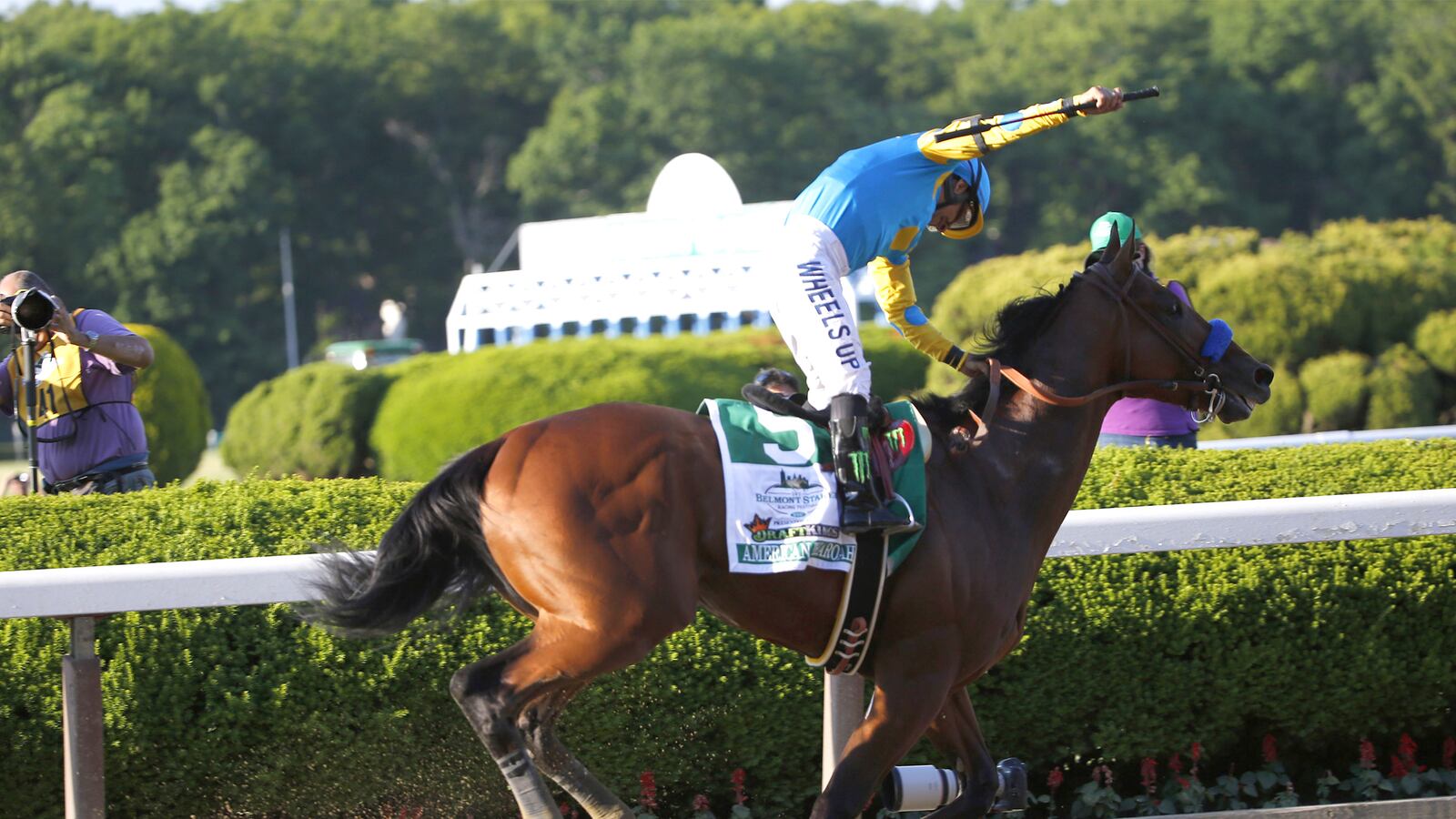Horse racing’s drought is thankfully over. American Pharoah is the first Triple Crown winner since Affirmed in 1978, and the twelfth in racing history. As Ahmed Zayat, American Pharoah’s owner, said, “This is for the sport ... Thirty-seven years! This is for all of you.”
Over a fast track, the gentle dark bay colt led from start to finish. He won the Belmont Stakes by 5½ lengths, and covered the mile-and-a-half oval in 2:26.65 minutes, the fastest time since 1992, when A.P. Indy captured the third leg of the Triple Crown in 2:26.13.
Early Saturday it was raining hard, but at the race’s 6:52 p.m. post time, the sun was shining, and less than 2½ minutes later, American Pharoah was greeted by the thunderous applause of 90,000 fans who had packed the stands.
His victory marked the culmination of a racing campaign that began in the summer of 2014, at California’s Delmar race track, when he finished fifth, more than nine lengths behind. Since then, American Pharoah hasn’t looked backed, garnering the title of racing’s best 2-year-old, and winning his next seven races without fail. In his brief career, American Pharoah’s total margin of victory is a staggering 35 lengths.
For American Pharoah’s connections, the Belmont marks the end of a wild ride, at least for the moment. His stable had filed for bankruptcy in 2010, almost walked away from American Pharoah at an auction in 2013, but now has found itself at the top of the racing game. “Sell your house; don’t sell this horse.” The advice given to the Zayats in the summer of 2013 in a moment of doubt can now be confirmed as brilliantly prescient.
The Belmont was also a badly needed shot in the arm for racing. Since its heyday, racing has lost much of its allure. Like boxing, it seems to many a vestige of the past.
Aside from the spring’s Triple Crown races, and Saratoga in August, the crowds just aren’t there. Last summer, average daily attendance at Belmont was around 5,600, while at nearby Aqueduct the figure hovers at around 3,700. As for television, about 16 million viewers watched the Kentucky Derby, and 8.9 million tuned in to the Preakness. By contrast, 34 million saw last January’s AFC divisional playoff game between the Baltimore Ravens and the New England Patriots.
Will American Pharoah’s win change things? Unlikely. But it is a reminder of why people watch horses run. There is majesty and might in a horse going nearly 40 miles per hour with a man on its back, fighting for every inch of dirt and advantage, as though it were its last.
There is also the mortal danger that never disappears. Earlier in the afternoon, Helwan, a 4-year-old colt, was euthanized after breaking his left cannon bone in an undercard stakes race. Like Ruffian, the legendary filly who broke down in the middle of a match race along the Belmont backstretch in July 1975, he will not be the sport’s last casualty.
With the Triple Crown under American Pharoah’s belt, the question is what comes next. He will likely be treated to a well-deserved rest and, next year, American Pharoah will be spending his time in a Kentucky breeding shed. What he does over the summer remains to be seen.
As to be expected, folks are trying to peg just where in racing’s pantheon American Pharoah belongs, and his time in the Belmont tells the story. He has both speed and endurance.
American Pharoah’s finish in the Belmont was faster than Affirmed’s by a nick, and quicker than the 1977 Triple Crown winner, Seattle Slew, by almost 3 seconds. American Pharoah even ran faster than his paternal grandfather, Empire Maker, who won the Belmont back in 2003.
American Pharoah got another thing right—post position, not that he had anything to do with it. Heading into Wednesday’s draw, Justin Zayat, American Pharoah’s stable manager, told The Daily Beast that almost any slot in the mile-and-a-half Belmont was fine with him as long as it wasn’t the rail and, in the end, only one horse on Saturday’s 13-race card won from way inside.
In the run-up to the race, Zayat also said that if American Pharoah were to win the Belmont, he would join racing’s “ranks as one of the greats.” He has; there’s no doubt about it. American Pharoah, mabrouk, congratulations on a job well done.






